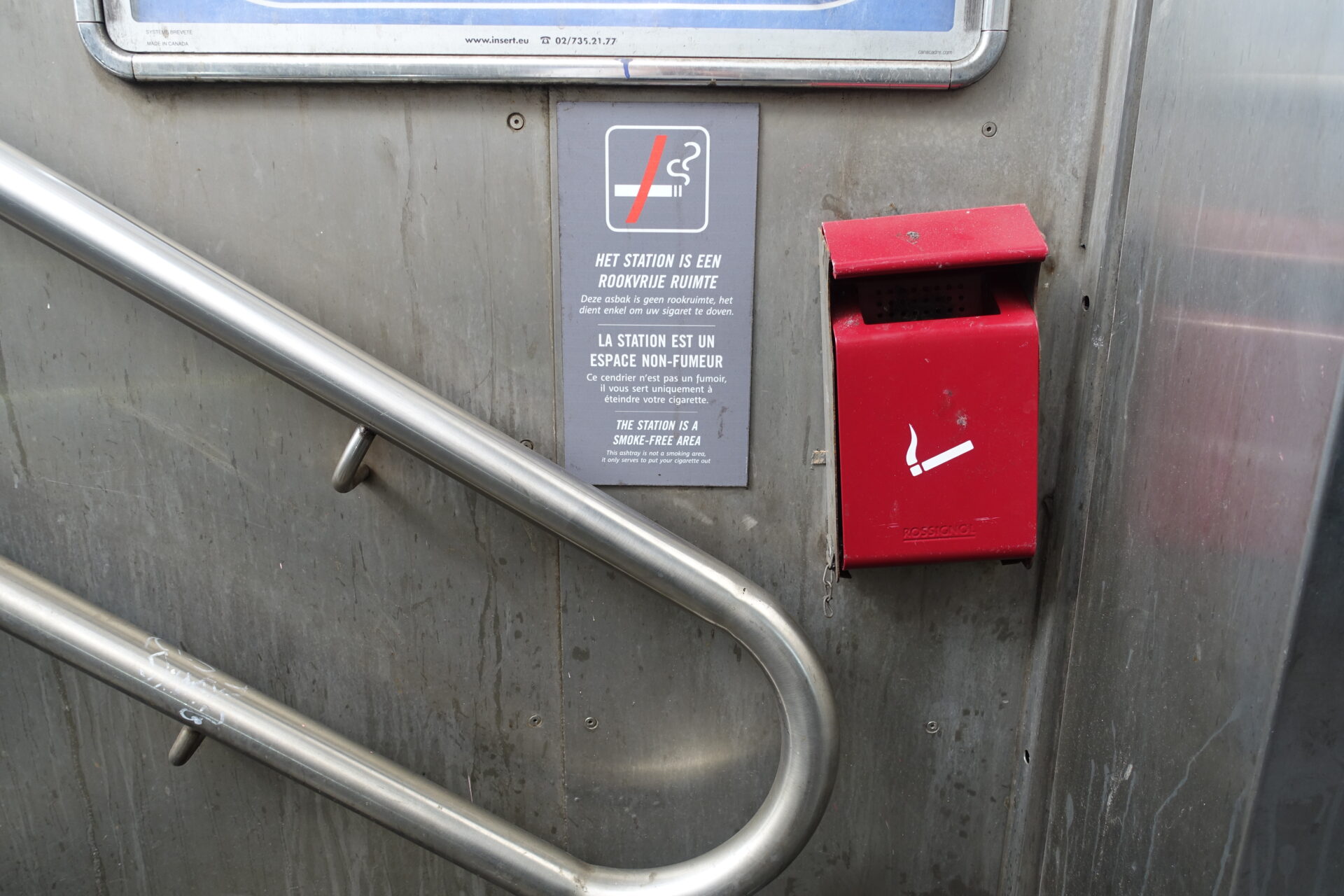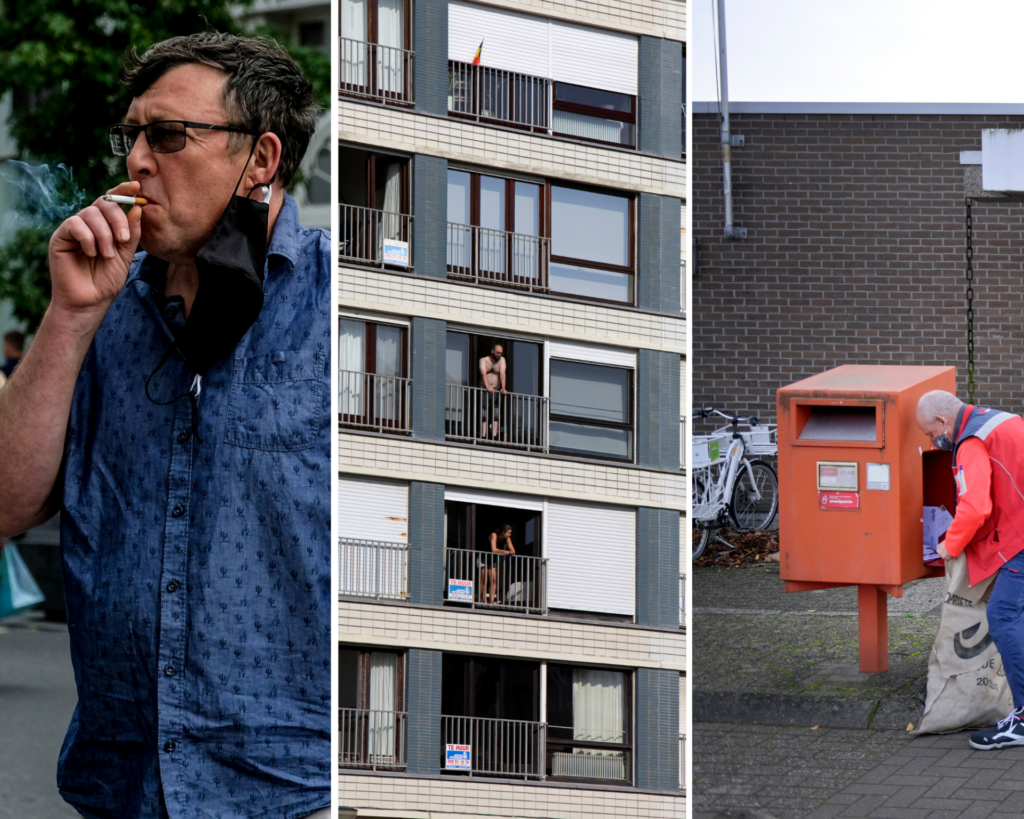January not only marks the start of a new month but a whole new year — 2023. Such a momentous occasion is paired with a long list of changes in Belgium. We've included the most impactful ones below.
Increased wages and bonuses
The biggest change to wages will see the salaries of more than one million workers rise by more than 11% in line with rising inflation. In quite a few sectors, this happens once a year, often on 1 January.
The largest group of people who will see their wages rise on 1 January — by 11.08% — are white-collar workers who fall under Joint Committee 200, including IT workers, call centre workers, and clerks in temporary employment agencies. Sectors such as the food industry and trade sectors, international trade clerks, catering, insurance and building management and real estate agents also have similar indexation of wages.

Employees working in bars, restaurants and cafés will also see their wages rise. Credit: Belga/ Jonas Roosens
Meanwhile, the adjusted tax scales coming into force in 2023 will see Belgian net wages rise by at least €600 a year, both in the private and public sectors. As this rise is separate from the automatic wage indexation on 1 January, this will therefore increase net pay even more.
Finally, as part of the wage agreement between unions and the government, profitable companies may grant a one-off purchasing power premium to their employees from 1 January. In profitable companies, the premium can amount to a maximum of €500. In companies with "exceptional profits," the premium can go from €500 to €750.
Things becoming cheaper (and more expensive)
A new law that will allow property buyers to save money on notary costs will officially come into effect on Sunday, resulting in the cost of purchasing a house being reduced by an average of €1,000.
This will see the cost for both the purchase deed and the loan deed, which anyone buying a property in Belgium must pay, being fixed at €750 and €550, respectively, for 98% of home purchases. The new measure excludes properties costing more than €850,000.
The price of subsidised crèches and childcare services in the Wallonia-Brussels Federation will be reduced by 30% for parents raising their child alone, a criterion that didn't exist before. The nursery fee will also become free for beneficiaries of the increased intervention.

A recently sold property in Brussels. Credit: Belga
Meanwhile, drinking water in Wallonia and Flanders will become more expensive. In the Dutch-speaking region, the increase in price is the result of new rates for drinking water which were recently defined and will see an average family of two to three people living pay about €17 more for the drinking water component on its water bill compared to 2022, amounting to a monthly increase of 50 cents per person.
In Wallonia, it is the "cost of distribution" (CVD) — the costs incurred by the water company to collect, treat, store and distribute water to each consumer —that will rise, from €2.62 to €2.80 per cubic metre. It is the first increase since 2014. For an average consumer, this will mean an increase in the bill of €16 per year or €1.33 per month in the 190 municipalities served by Walloon water company SWDE.
Health-related changes
As was previously announced earlier in 2022, smoking will be banned from all national railway operator SNCB's train station platforms from Sunday onwards. The Belgian government first announced a ban on smoking on board its railways in 2004, however, this latest decision will see the entire Belgian railways become smoke-free.
Both smoking and vaping will be prohibited in all areas of the country's 550 stations, including in the open air. Fines, the amount of which will vary according to the number of offences (€50, €75 or €150), may be imposed in the event of non-compliance.

A no smoking sign at a STIB station in Brussels. Credit: TBT
Meanwhile, the price of tobacco will rise by half a euro, resulting in the price increasing to €8 on average; by 2024, Health Minister Frank Vandenbroucke wants to see the price move towards €9 to discourage smoking.
Finally, the price of the lowest consultation fees with a general practitioner and some specialists will now cost €30 instead of €27.25, a 10% price increase that is in line with inflation. This represents an additional increase of €0.81 on top of the indexation of 7.11%, bringing the total increase to 10%.
In addition, doctors' fees will be indexed as linearly as possible at 7.11%, of which 2% was already applied last year.
You've got mail
Sending letters and parcels in and from Belgium will get more expensive as postal company bpost is raising some postal rates sharply to account for rising business costs due to inflation, wage indexations and falling mail volumes.
A non-prior stamp will cost €1.39, 20 cents more expensive than before, while customers will have to fork out €2.17 for prior stamps instead of €1.89. Sending a parcel up to 1 kg will become €1 more expensive, now costing €5.60. Parcels between 0 and 2 kgs will cost €7.80, €0.90 more costly, and bpost will charge a €1 surcharge for parcels sent during the busy period between Black Friday and Christmas.
Related News
- Cost of drinking water to rise slightly in 2023
- How will your energy contracts be indexed next year?
- After Proximus, Orange will now also raise prices from January
Communication by e-mail will be legally recognised as a valid means of notification as a result of the Civil Code reform that will come into force on Sunday. The new provision offers legal certainty to the recipient, however, the e-mail is only deemed to have reached the addressee if they have agreed to the use of their e-mail address before the notification is sent.
Changing working conditions
People in Flanders who have been without a job for more than two years will be called on to do mandatory community service starting from Sunday onwards to ensure jobless people do not become socially isolated. The initiative is also expected to offer them more active support in finding a job.
Those who refuse to do this service risk losing their benefits. They will be given a job with a local authority, such as a street sweeper, supervisor on the school bus or with the green service, for up to 64 hours a month.
Fathers and women who are mothers of a baby without giving birth to the child will see their birth leave be extended from 15 days to 20 days if their baby is born on 1 January 2023 or after. This birth leave applies to private sector employees, contractual public servants and self-employed workers.
The maximum number of hours students are allowed to work in one calendar month at a reduced social security contribution rate and without losing family allowances, will be increased from 475 to 600 per year — or a maximum of 240 hours per quarter — a measure that will run until at least 2024.
Finally, the long-awaited clearer legal framework for platform workers (including meal delivery drivers and VTC drivers who work for Uber, among others) will come into force on 1 January, which aims to end the ambiguity surrounding the status of people working in the platform economy.
In addition, all platform employees will be insured against accidents at work, including when they are self-employed.

